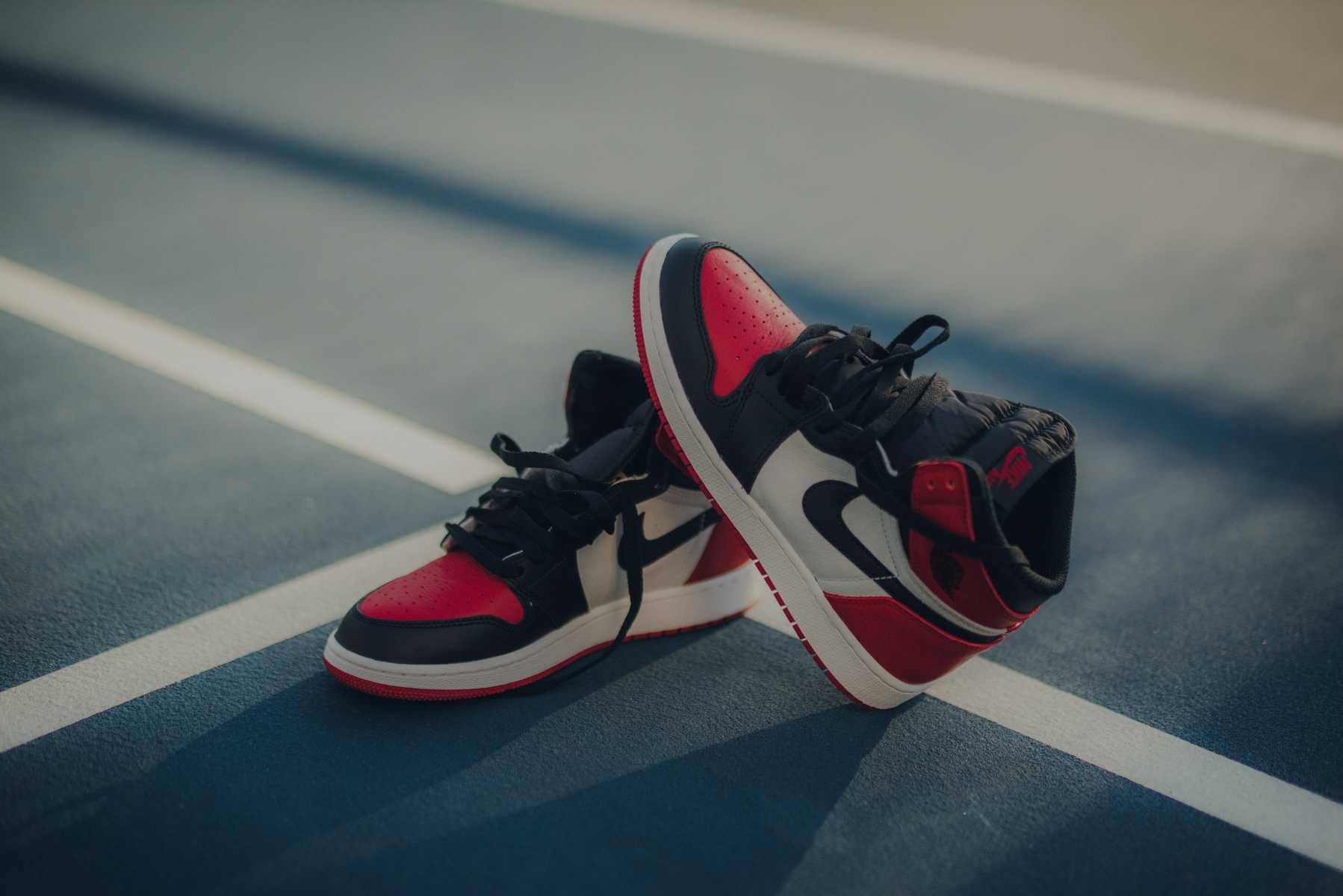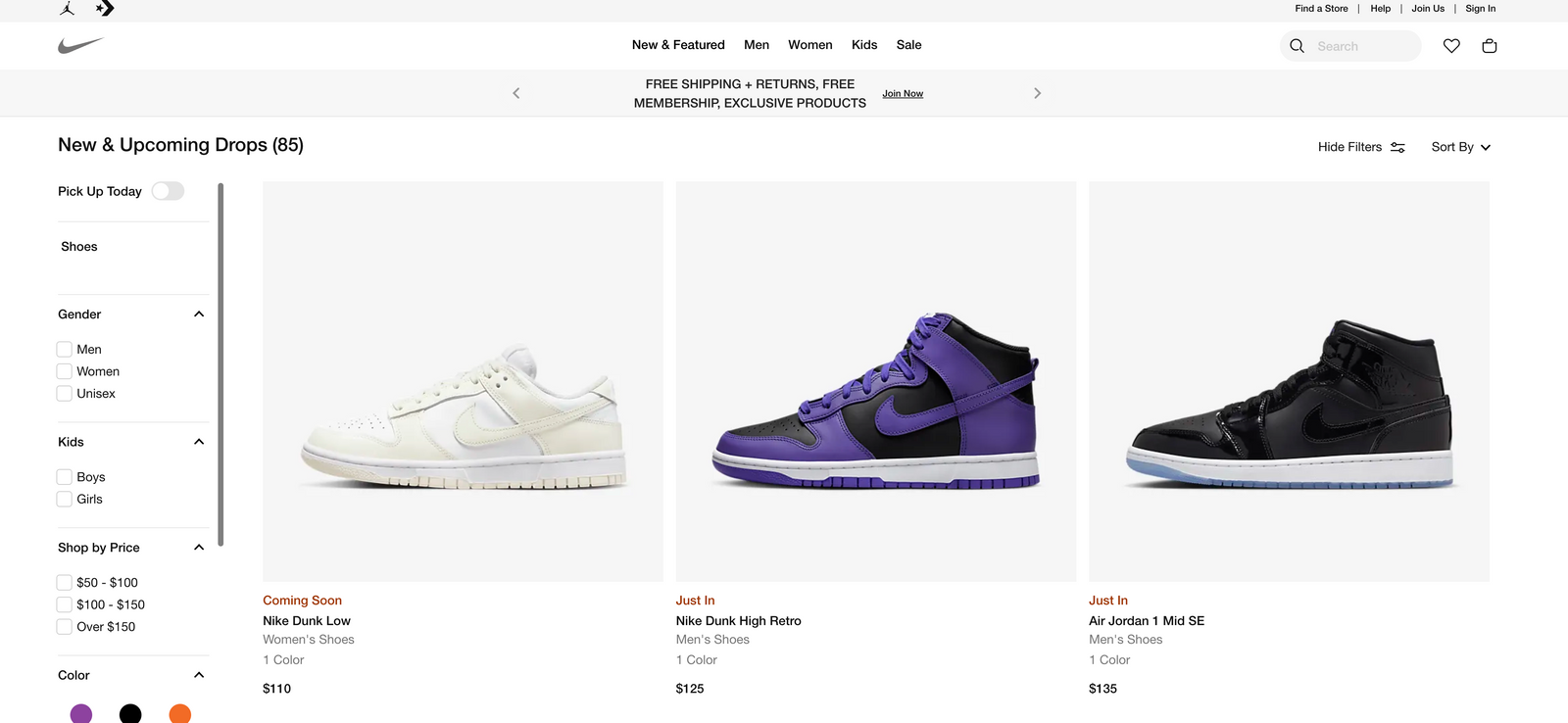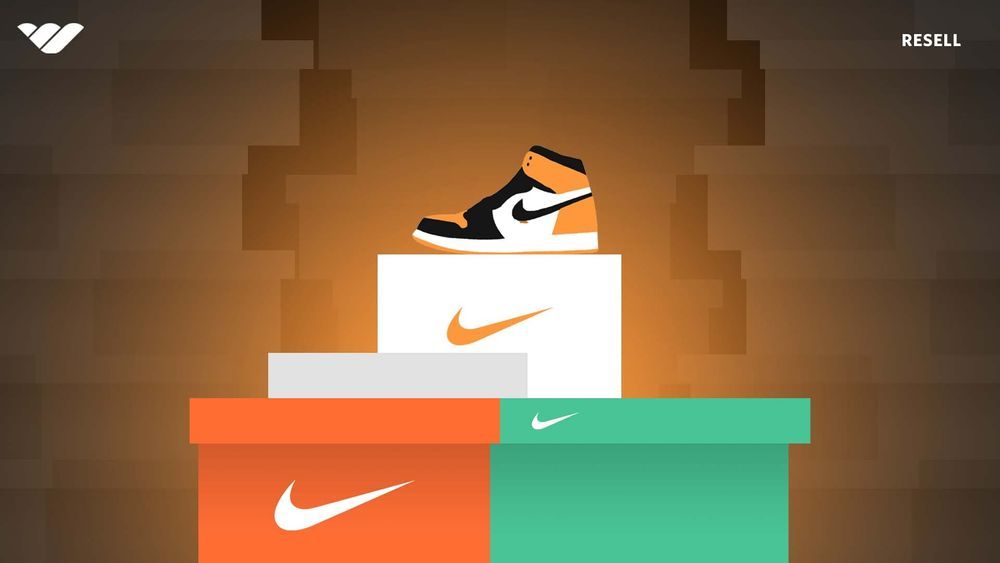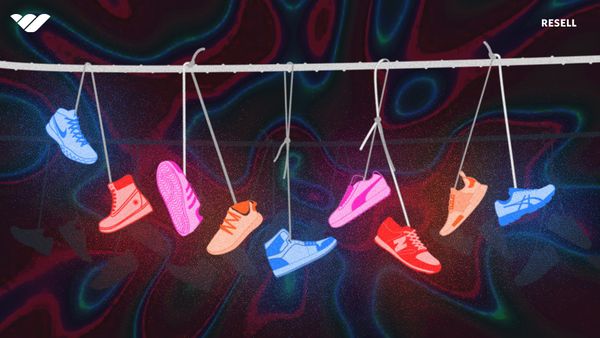The sneaker reselling game is a great side hustle– and one that requires you to pay good attention to the rules that the shoe companies set. If you want to stay competitive, you need to be on top of the game. Just using your computer or phone to hopefully cop one pair in a drop isn’t going to cut it if you want to make serious coin! Instead, smart shoe resellers use proxies and bots to help them cut through the red tape and buy as many pairs as possible to hit the reselling market.
However, shoe stores have their own ideas about how many pairs of shoes you can get at once, and recently Nike made some changes to their rules that may have a serious impact on your ability to buy and resell sneakers. Sneakerheads everywhere have been commenting about these changes, so let’s talk about what they are and see if they’re really going to live up to the hype.
What Are Nike’s New Reselling Rules?
The full Terms of Service for buying Nike shoes can be found here, but we’ll go over the most important, relevant parts now.

No Purchase for Resale
“NIKE Stores, including any consumer rights or policies offered in NIKE Stores, are intended solely for the benefit of end consumers, and therefore purchase of products for resale is strictly prohibited. Purchase for resale means the purchase of product by someone who intends to resell the product to others (consumers, businesses or any third party). If NIKE determines that a purchase or order is intended for resale, NIKE reserves the right, in its sole discretion, and as it relates to such purchase or order, to (1) suspend the application of any NIKE policy that provides a right or benefit intended for direct to consumer purchases; and (2) take any action to hinder such purchase or order (and deter future purchases or orders), including without limitation, to restrict sales to any consumer, consumer account, or member account, cancel orders, charge restocking fees, impose purchase quantity limits, decline to issue refunds or take returns, deny access to any NIKE Store, and/or suspend or close any account.”
In plain English: Official Nike stores are only meant to sell shoes to people who plan to wear them or are purchasing them for somebody to wear. If Nike decides that a purchase or order is not meant for an individual, but is meant to be resold, Nike has the right to prevent you from buying shoes by:
- Canceling your order
- Restricting sales to your account
- Setting up purchase quantity limits
- Denying refunds or returns
- Charging a restocking fee if they do accept your return
- Banning you from their stores or digital marketplaces (including the SNKRS app and website)
- Deleting your account.
Our Right To Reject Your Purchase Or Cancel An Order
“Sale of products and fulfillment of all orders at a NIKE Store is subject to availability and our discretion... We explicitly reserve the right to limit, decline or reject any sales and orders for any reason… in situations including but not limited to:
- the product you seek to purchase is not available or in stock;
- your order is flagged by our security systems as potentially fraudulent, or an order placed with automated ordering software or technology;
- there is evidence that your order (single or cumulative orders) was purchased for the purpose of resale…;
- your purchase or order exceeds product purchase limits…;
- your account and/or purchase history shows an excessively high volume of returns;
- there is evidence that you are not eligible to make purchases NIKE will determine whether any of the above events have occurred in its sole discretion.”
This part is long, so we trimmed the parts that aren’t relevant to reselling– but there are some important rule changes that you need to be aware of. The big one is this part: “your order is flagged by our security systems as potentially fraudulent, or an order placed with automated ordering software or technology.”
In other words, watch out if you’re using a sneaker bot without a really good proxy, because the new rules imply that they are going to really be cracking down on bots.

They also say that they’ll be looking for evidence that your order or orders were purchased for the purpose of resale, but they don’t define what that means. What we can assume is that they will be looking at your account as a whole and looking at behavior over time.
Why Did Nike Change the Rules?
Nike hasn’t actually made any official comments about why they changed the rules so much– but it just might have something to do with the major stock price drops that have occurred in the first quarter of 2023. Nike has been struggling with overstock issues, some of which may have an impact on warehouse space, ability to move shoes, and other logistics issues that have prompted these rule changes.
Rule Change Pros
One of the biggest pros to these new rules is that ideally, LE shoes will be much easier for the average sneakerhead to get at the drop. They’ll still have to stalk the drop page, but there will be less competition.
And speaking of competition: this may actually open up the market a little bit more for resellers who are willing to be smart and make moves. If you can be nimble and set up your software correctly, you will be able to outmaneuver huge resellers who get caught up and penalized by these new terms of service.
Rule Change Cons
However, we will be honest: For resellers looking to make a buck on their sneaker side hustle, these rule changes are frustrating.
First, there’s the issue that comes with the new restocking fees. Let’s say you’re able to get twenty pairs of LE Jordans, but can only move ten of them for some reason. The new restocking fees mean that you’ll lose even more money returning them to Nike.
Also frustrating is that Nike hasn’t said what order size will trigger these fees, or how much they will be. Until we hear more about this from affected resellers, we don’t actually know just how much of a problem these restocking fees will be.
Additionally, the rules might not even work for the people they’re intended to help! One of the big issues regarding sneaker access is backdooring. When somebody backdoors, it means that they use an off-the-record relationship to get sneakers before they are released to the general public via a drop. Sneaker fans who know the market say that backdooring is worse for the public than botting, largely because of how much it affects physical shoe stores– which is where a lot of people go to buy shoes.
And finally, a lot of these rules are vague. It makes sense that Nike wouldn’t define its rule changes too thoroughly– this gives them more leeway to make judgment calls. But this is exactly the kind of thing that can scare a reseller away, and that’s what they want.
So. The rules have changed. Does that mean the sneaker reselling game will change, too?
The Future of Reselling Nike Sneakers
Regardless of the Nike reselling rules, sneaker reselling is going to remain a fun, lucrative side hustle for sneakerheads.
One major reason for this is that Nike itself sees big profits from resellers. The brand has benefited massively from the brand awareness fueled by resellers and sneakerheads who want their LE shoes. The prominence of social media in peoples’ lives have made Nike’s shoes aspirational– they look good and people really want them. Resellers are the ones sharing their successes on Nike’s SNKRS app, and the market share for resellers is only getting bigger and hotter.
And make no mistake, Nike knows the value of a healthy resale market. In summer 2022, Nike actually went after StockX for allowing counterfeit shoes to be sold on the platform. Nike knows that people associate their name with quality and design, and they want to be well-represented on the resale market. Without paying attention to that market, they could see serious branding damage from a flood of fake shoes.
So what should a smart reseller do to deal with these new rules changes?
Play Around the Risk
There has always been a risk when it comes to sneaker reselling. Fulfillment issues and cancellations, supply chain meltdowns, making a bad pick and getting stuck with too many pairs of a shoe that won’t sell. Sneaker reselling is a gamble, but you can make it more of a sure thing if you’re smart and you do your research. Not being able to return overstock is only a problem if you have overstock in the first place.

Get A Proxy
Online store security systems that try to ban bots usually are looking at IP addresses when determining the validity of a purchase. This means that if you’re using a datacenter proxy, you’re way more likely to get flagged than if you’re using an ISP proxy or residential proxy. If you don’t know what a proxy is, or don’t have one set up, you absolutely need to go read about them. Proxies are going to be more important than ever for reselling Nike sneakers.
Get Connected
If you haven’t joined a reselling cook group or Discord server, you may find that you’re navigating the new Nike reselling rules blind. Consider joining these groups an investment in your continued ability to successfully flip sneakers– instead of going it alone, you’ll find a community of like-minded people who you can strategize with. It’s good to have friends in the game!
Ultimately, the new Nike reselling rules aren’t going to stop people from reselling Nike sneakers. While the marketplace might change a little bit, it’s not going anywhere– so don’t panic, and don’t give up. Just keep bringing your A-game and stay on top of the hustle!


![Top 18 best ticket reselling Discord servers [November 2024]](/blog/content/images/size/w600/2023/12/Top-Ticket-Reselling-Discord-Servers--1-.webp)
![Top 22 best sneaker reselling Discord servers [2024]](/blog/content/images/size/w600/2024/01/sneaker-reselling-discord.webp)
![Top 26 best reselling Discord servers [November 2024]](/blog/content/images/size/w600/2023/09/reselling-discords.webp)
